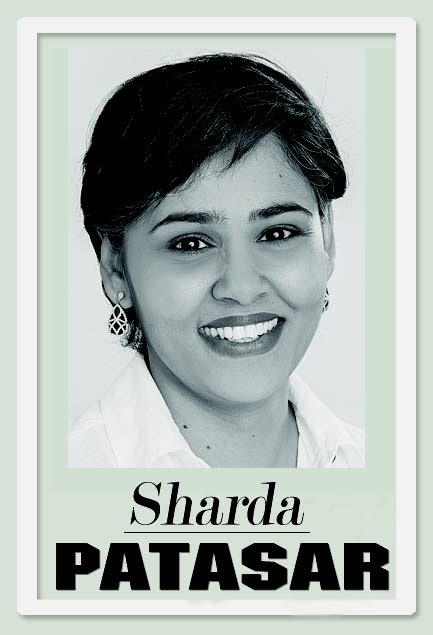The many layers of you and me

Sharda Patasar
Day 15: It’s been two weeks into psychotherapy and my therapist is convinced that I can begin to thread out my story on my own. The lines are open if I need to talk however.
"If you had come in here saying ‘Everything is fine. I’m all better,’ I’d have definitely said something is very wrong. This week, I am hearing a person who is balanced, someone who has very clear boundaries," she explained.
“Yes! When I visited you that last time I had a sudden shift in perspective. I still have my moments from time to time but as you advised, I am being gentle with myself and owning the feelings. In fact, I was making some tea last week and I burst out laughing because this entire scenario is very comical. It’s all just immense cowardice masquerading under a badass attitude. I have actually lost nothing. I’ve been kicked quite hard but it’s a kick up a few notches closer to my own self-awareness. For me the most important thing is that I still have my self-respect. And that’s solid,” I stated, leaning back on the couch.
"Did this incident in any way make you feel that you weren’t enough?" my therapist asked.
“Absolutely not! Never once did that thought cross my mind. Why would it?” I scoffed.
My therapist’s expression was one of amusement.
"Ok good. I didn’t get that sense but just checking," she said.
“I sound arrogant saying this don’t I?” I asked laughing, for I was now hearing myself. She laughed.
I knew that it was arrogant, but just this once I felt that my arrogance was justified. I am owning these feelings and there is nothing more powerful than knowing that there is no right or wrong at this point. It is what it is.
It was only earlier this week that more than one friend revealed that they were still struggling with feelings of self-worth. Only then did it occur to me that after a marriage had gone bad or an important relationship had disintegrated many people experience feelings of, "Where did I go wrong? Am I not good enough?" In my case, for some odd reason, it had been the opposite. The incident in fact had reinforced my self-worth. The question is: why?
Among the many issues to thread out, this week’s homework has to do with what had happened to shift perspective? What responsibility do I take in the scheme of things?
"I do not want you to look with an eye to blame. Now you are simply looking on with curiosity," my therapist advised.
This is an exercise in acknowledging the emotions in order to stand above it, observe and ground oneself. Easier said than done, particularly when an emotion like anger surfaces. But practice makes for some semblance of perfection.
If any experience has provided a more solid case for a creative life, it is the one through which I have been journeying these past three weeks. At the core of leaning into our vulnerability is the opportunity to own our stories.
"Stories are not just arbitrary things," my therapist explained. "Every time we tell a story from beginning to end, our brain actually releases dopamine – that feel-good chemical – because the human brain is wired for storytelling." (I wondered if that’s why compulsive liars continue to lie). Owning our stories is about discovering that we are, in fact, a composite of smaller stories that come together to form a whole.
To quote a saying of the Asaro Tribe of Indonesia and Papua New Guinea from a book lent to me by a friend who thought that it would be a useful addition to my therapy – "Knowledge is only a rumour until it lives in the muscle." (Brene Brown – Rising Strong).
This entire exercise, for those who have been following the progression of events, is one in shifting knowledge from brain to heart. It is an exercise in living wholeheartedly. And living wholeheartedly means breaking down the narratives passed to us that we have blindly accepted, and reworking the script.
On an occasion like Emancipation, this is an important exercise, for our national progress is hindered by incomplete narratives, mangled stories, twisted truths that have become emotional matters. Caught in the emotions generated by the issues rather than looking at the issues themselves we simply react. But what if we were to take a step back and look in with curiosity, engage with the stories and flesh them out? How much stronger would we be as a nation if each person acknowledges her individual story in order to understand that each story is, in fact, linked to a greater story that we have the power to rework?

Comments
"The many layers of you and me"